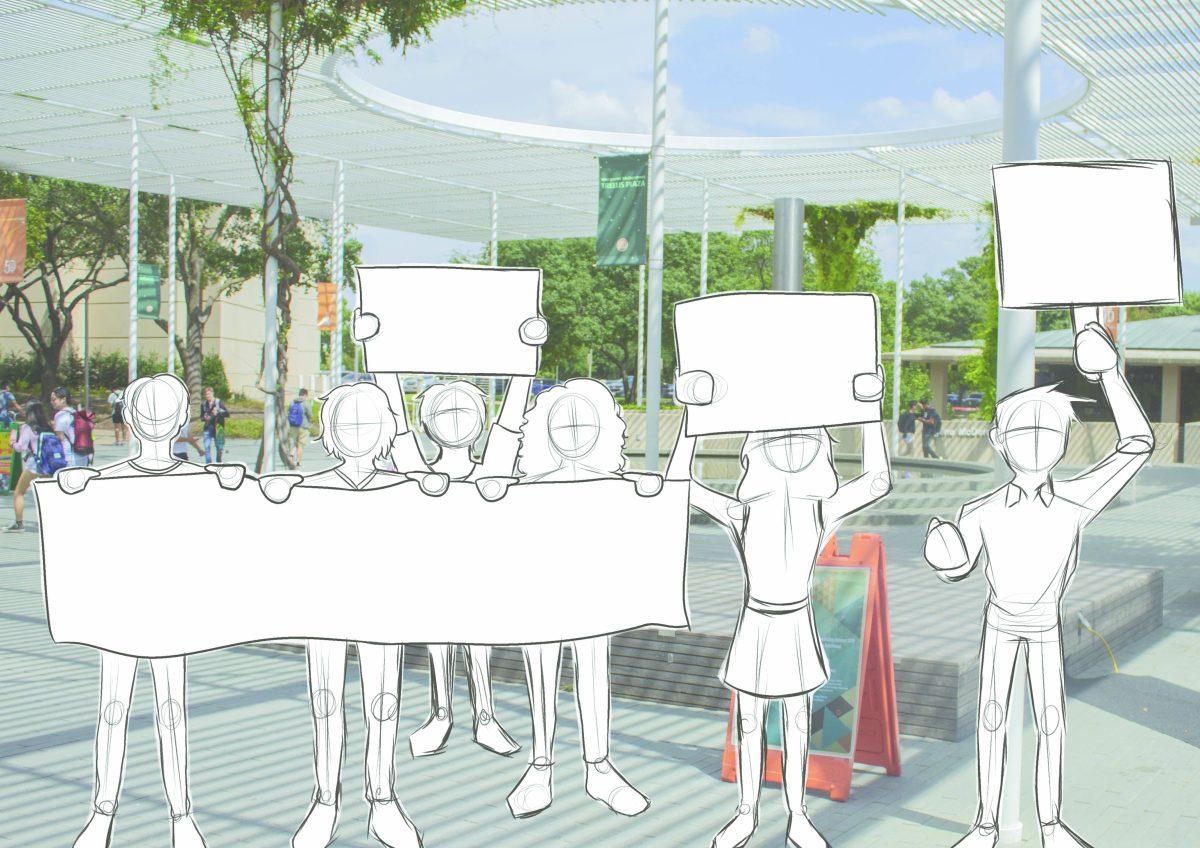Senate Bill 18 allows outside groups to demonstrate in public campus spaces without university permission as part of effort to turn universities into public forums
A recently-passed bill has changed the way students and non-affiliated persons can demonstrate and assemble on college campuses in Texas.
Senate Bill 18 allows for student groups and non-affiliated persons to assemble in outdoor spaces on campus without having to use the student organization center to reserve a space, as was previously required.
Vice President of Student Affairs Gene Fitch said students have always had the opportunity to express themselves; Senate Bill 18 only changes the way groups need to reserve spaces.
“That just creates some complications, or can, if our student groups decide that, ‘Why am I gonna use the student organization center,’ or ‘Why am I going to go through the reservation system if I can just go set up and do my thing,’” Fitch said. “The problem obviously that that causes is that someone may have properly reserved the space, or done it the same way they’ve done it in the past, so if you show up to use the Plinth for example, but another group has it reserved then you’re not going to be able to hold your event.”
Fitch said that in response to the bill, a team has been put together that can be dispatched to monitor unannounced events. Students can contact Student Union Director Dan Goodwin’s office to report any unannounced assemblies, he said.
The bill impacts both student groups and non-affiliated groups, Fitch said, but it impacts non-affiliated groups differently.
“The difference for non-affiliated groups is that in the past, the only way you were able to access facilities is if a student group or faculty staff group invited you,” Fitch said. “So the way the legislation has changed with SB 18 is that now non-affiliated groups can come to campus, but they don’t have to be invited: they can just show up and have a protest, have an assembly, distribute material carry signs whatever they want to do to express their speech or their point of view.”
Computer science senior Katy Brown said she thinks the bill is a reaction to the current polarization of the political alignments.
“From my perspective, at UTD for the past 4 ½ years I’ve never really seen a problem with people coming to speak,” she said. “Even with opposing viewpoints to the majority, there’s never necessarily been a problem.”
Fitch said if the university knows there is going to be a demonstration, they can plan for the event with the UTDPD.
“But when you don’t know they’re coming, it makes it difficult. So what we have been asking students that we meet with is that if they see an activity on campus to let us know so we can go and ensure everything is fine and there’s no potential for harm, no potential for damage,” Fitch said.
Brown said the policy could cause a problem because the university would have to accommodate groups whether they were invited or not.
“Whether they’re liberal, conservative (or) moderate, just the fact that anybody with an idea can show up on a college campus without being invited — I feel like that’s going to cause a problem somehow,” Brown said.











